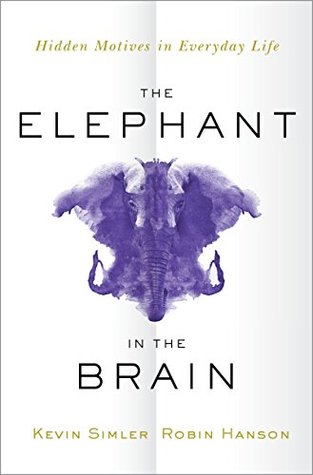The earliest Homo sapiens lived in small, tight-knit bands of 20 to 50 individuals. These bands were our “groves” or “forests,” in which we competed not for sunlight, but for resources more befitting a primate: food, sex, territory, social status. And we had to earn these things, in part, by outwitting and outshining our rivals. This is what’s known in the literature as the social brain hypothesis, or sometimes the Machiavellian intelligence hypothesis.3 It’s the idea that our ancestors got smart primarily in order to compete against each other in a variety of social and political scenarios.
Welcome back. Just a moment while we sign you in to your Goodreads account.


